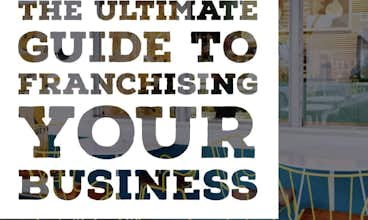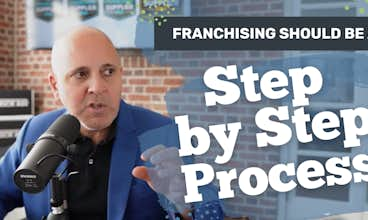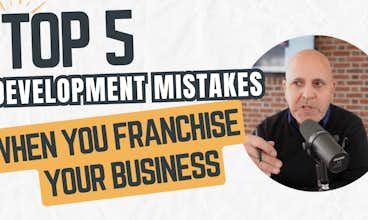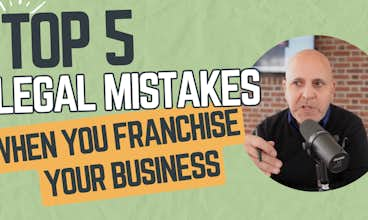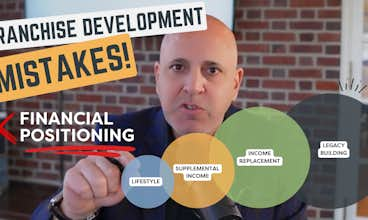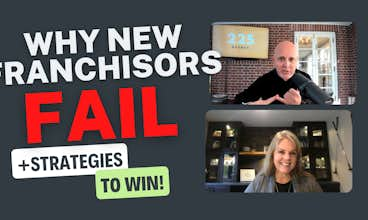Studio Kiku Billy DeCola shares his journey from ‘NY Ink’ to building a business focused on quality, service and care.
KEY TAKEAWAYS:
- As a franchisor, it’s critical to know your core values and establish a personal belief system to operate by.
- Developing a customer service philosophy based on trust, care and attention to detail can help franchisors earn a loyal client base.
- While it’s impossible to please everyone, building a values-based business model can have advantages for franchisors and franchisees.
From an electronics business in Japan to an exclusive tattoo studio in Vancouver, Canada, Billy DeCola spent most of his adult life taking risks and building thriving businesses. So when the chance to own a high-end laser for removing tattoos popped up in early 2020, the esteemed tattoo artist jumped at the opportunity.
“I was sending tons of traffic out the door, so I said, why don’t I just get a laser?” says DeCola, the founder of Studio Kiku, a Canadian laser tattoo removal franchise, recalling that clients would frequently show up to appointments requesting cover-ups and corrections of botched or unwanted tattoos they’d received elsewhere.
But a few months after shelling out hundreds of thousands of dollars on the advanced non-surgical laser and preparing to launch a new business dedicated to tattoo removal, DeCola’s plans were brought to a sudden, and unexpected, halt when shelter-in-place orders and a global pandemic left his business – and its future growth – on hold.
Turning setbacks into fresh starts
As a seasoned entrepreneur with a history of beating the odds, navigating unforeseen obstacles was nothing new for DeCola, who had overcome similar challenges early in his career.
After moving to Japan from Miami in his 20s, the adventurous Florida native spent eight years building a life in the East Asian country, first teaching English and later launching a business importing and exporting video equipment while banking on the strong value of American currency to broker major deals. But while business had boomed early on, things changed in 2008 after the stock market – and the U.S. dollar – took a tumble.
“A lot of people went belly up (in the recession), and I was one of them. I lost everything,” DeCola recalls.
Stuck in a purchasing agreement that forced him to continue buying expensive equipment from suppliers on a schedule, DeCola’s once-thriving business quickly ran out of resources without enough buyers to make up the difference. Unable to afford to continue operating in a challenging economy, the enterprising young expat shuttered the business and returned to Florida to start over.
Back in the U.S., DeCola found work as a shop assistant at Miami Ink (now Love Hate Tattoos), the famed tattoo shop at the center of the eponymous reality television series on TLC. Now in his 30s and still grieving the loss of his former business and life in Japan, DeCola knew he wanted to do more than mop floors and sell tattoos in America. He wanted to become a tattoo artist.
“I was happy to have the job, but I wasn’t happy where I was in life. Coming from making big deals to sweeping the floor was pretty humbling,” DeCola says.
Determined to learn how to tattoo and build a new career for himself, DeCola’s friendships with the talented artists at the acclaimed tattoo shop put him on the fast-track to becoming a professional tattoo artist, a skill that would ultimately land him a spot on the reality TV show “NY Ink,” and bring him a step closer to owning another business – and becoming a franchisor.
Finding a business model that scales
After spending two years as a cast member of “NY Ink” and working at the New York City tattoo shop made famous by the show, DeCola and his wife, Kaori, made the decision to move to Vancouver, where they and their children could be closer to Kaori’s family.
But after opening a private tattoo studio in Burnaby, Canada, and leaning into his expertise by teaching educational workshops for tattoo artists learning scalp micropigmentation techniques, DeCola started noticing a trend – in addition to requesting new tattoos, more and more clients also seemed to want their old tattoos removed.
“I just started taking note of how many people (were) coming in the door looking for tattoo removal, or looking for fix-ups,” DeCola says.
After purchasing a cutting-edge laser and waiting out the restrictions that left his new tattoo removal business in limbo during the pandemic, DeCola finally opened Studio Kiku, relying on his expert knowledge of pigment and skin to develop a unique tattoo removal system that differentiated the brand from competitors.
“Once everything kind of opened back up, we hit the ground running,” DeCola recalls.
In addition to its highly sought-after laser tattoo removal services, though, Studio Kiku also offered something else for DeCola: the opportunity to franchise the business in Canada. Unlike tattooing, which relied on the individual talents of artists to create original work for one-on-one clients, laser tattoo removal was something that could be replicated across multiple locations – alongside the service-oriented culture that had made an impression on DeCola while living in Japan years earlier.
“There are some things that really stick out (about Japanese businesses), and one of them is really putting the client first. That was a huge lesson for me, and it’s something that I don’t think I’ll ever let go,” DeCola says.
DeCola’s values-driven, customer-oriented philosophy proved successful. After training staff and seasoning the business with the intention to grow and scale, he opened Studio Kiku’s second corporate location in Langley, Canada, earlier this year. With its Japanese-inspired emphasis on consistency and a high level of customer care and satisfaction, the brand quickly set itself apart from other laser clinics – something DeCola says was important for earning the trust of a uniquely nervous customer base.
“The last thing (tattoo removal clients) want is to go through another experience where they get something they weren’t expecting,” DeCola says.
A legacy built on values and resilience
Named after the Japanese chrysanthemum symbolizing resilience, longevity and rejuvenation, Studio Kiku is a testament to DeCola’s perseverance and his unique ability to transform obstacles into opportunities as an entrepreneur.
Now a key opinion leader for Candela, a leader in aesthetic devices, Studio Kiku’s focus on delivering quality services and results to tattoo removal clients has attracted the attention of an international clientele since opening its doors several years ago, with clients sometimes traveling long distances despite having closer options available locally.
“People are searching for a great tattoo removal place. We have people flying in from all over the States, all over Canada. They’re coming to Vancouver to get a tattoo removal,” DeCola says.
Unfortunately, customers in the U.S. will have to wait a little longer to visit Studio Kiku locally. Although DeCola reached out to The Internicola Law Firm to explore franchising in the U.S., widely varying state laws regulating laser services proved burdensome for the new brand. Still, expansion into the American market is an option DeCola says he’s keeping in mind for the future as the business evolves.
In the meantime, DeCola remains focused on growth in Canada, where he’s working to find the right franchisees to maintain the franchise system’s standards and commitment to excellence – a goal he says has been challenging, despite its importance for keeping Studio Kiku on the right path as it expands into new markets across the country. Still, DeCola is devoted to building the brand around those core values, which he says make up the bigger picture for the business.
“You’re not going to please everyone. That’s just a fact. … But what you can do is always stick to your belief system. And if you do what you think is right, and you stick to it, then you’ll feel good at night going home,” DeCola says.
